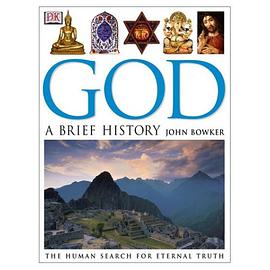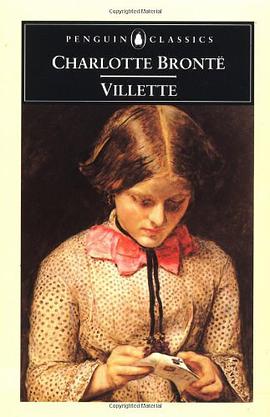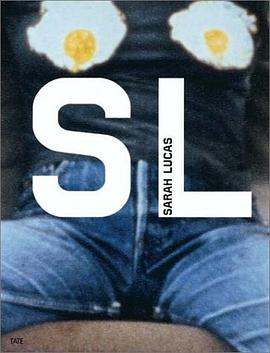

具体描述
From Publishers Weekly
Having already written a lushly illustrated overview of the beliefs and practices of the world's religions (World Religions, also from DK), Bowker turns his attention to God and produces a book chock-full of facts, stories, legends and illustrations about the ways that religious traditions have developed their beliefs in God. Bowker first examines the ideas of Nietzsche, Feuerbach, Freud and others to demonstrate that all individuals and societies grapple with the meaning of God. In roughly chronological order, Bowker surveys the history of belief in God in animistic religions, Hinduism, Buddhism, Chinese religions, Judaism, Christianity and Islam. He explores various aspects of this belief, such as the meaning of dharma, the concept of wisdom and the nature of pilgrimage. Yet Bowker's book contains numerous problems. First, he never explains what he means by God. Is God the same as the Sacred or the Divine? Without a clearer explanation, many of the religions that he examines Buddhism, for example cannot be said to have a God. Second, does God indeed have a history? That implies that God would have had a beginning and will have an end, which runs counter to the notion that God is eternal and ahistorical. Third, because he does not provide a clear definition of God, Bowker levels the differences among the world's religions so that it appears that the God of Judaism is the same as the God of Hinduism. At best, Bowker provides a superficial overview of the history of belief in God for the "religion lite" crowd.
Copyright 2002 Cahners Business Information, Inc.
From Library Journal
The former dean of Trinity College, Cambridge University now at Gresham College, Bowker (The Oxford Dictionary of World Religions) quotes a poem by R.S. Thomas to explain the purpose of his book: "the better ventilating of the atmosphere of the closed mind." Throughout, he opens doors to many spiritual and religious traditions, describing ways in which people "have made their own discoveries of God and have developed and changed our understanding of who and what God is, and of how God became real to them." The result is a fascinating, all-purpose book, beautifully illustrated in the DK manner. After the introductory material, the text is divided into sections on the religions of India, the religions of other Asian countries, and the Abrahamic religions (Judaism, Christianity, and Islam). With articles like "Jihad and Martyrdom," "Temples of India," "From Tagore to Gandhi," "Sex and Tantra," "Kabbalah," "Thealogy (feminist theology)," and "Celtic Christianity," the range is obviously wide. The maps, time lines, and comprehensive index are also helpful, and readers are encouraged to explore further with the help of a very good bibliography. Though similar information can be found in many introductory books on world religions, including the more traditional The Cambridge Illustrated History of Religions (edited by Bowker; see review below), this work lends itself more to pleasure reading than reference and will appeal to the casual reader interested in the variety of colorful religious rituals and symbols presented here. Highly recommended for high school and public libraries as well as undergraduate collections in academic libraries. Gary P. Gillum, Brigham Young Univ., Provo, UT
Copyright 2002 Reed Business Information, Inc.
作者简介
John Bowker
John Westerdale Bowker (born July 30, 1935) is a professor of religious studies who has taught at the universities of Cambridge, Lancaster, Pennsylvania and North Carolina. He is an Honorary Canon of Canterbury Cathedral, a consultant for UNESCO, as well as a BBC broadcaster and author and editor of several books.
Life
Bowker was educated at St John's School Leatherhead, Worcester College, Oxford and Ripon Hall, Oxford. After national service in RWAAF N Nigeria he became Henry Stevenson Fellow at the University of Sheffield in 1961. He then moved to Cambridge University where he was Dean of Chapel of Corpus Christi College, Cambridge (1962) and Assistant Lecturer (1965) and Lecturer (1970). In 1974 he was appointed Professor of Religious Studies at the University of Lancaster, and in 1984 moved back to Cambridge as Dean of Chapel of Trinity College, Cambridge (1984-91) and a Fellow of Trinity College, Cambridge (1984-93), also teaching, supervising and researching at the University. From 1992 to 1997 he was Gresham Professor of Divinity at Gresham College, London.
He was appointed Adjunct Professor at the University of Pennsylvania and at North Carolina State University in 1986.
He gave many invited lectures including the Wilde (University of Oxford), Riddell Newcastle University, Boutwood Cambridge University, Scott Holland London University, Bicentary University of Georgetown.
He served on various commissions including the Archbishops' Commission on Doctrine (1977-86). He was appointed Vice-President of the Institute on Religion in an Age of Science in 1980.
http://www.answers.com/topic/john-bowker
目录信息
读后感
评分
评分
评分
评分
用户评价
这是一本真正能够激发思考的书籍。当我翻开《God: A Brief History》的时候,我并没有预设自己会获得什么特定的答案,我只是抱着一种探索的心态。而这本书,恰恰提供了一个绝佳的平台,让我能够跳出具体的宗教教义,去审视“神”这个概念在人类历史长河中的演变轨迹。作者以一种近乎人类学和社会学的视角,探讨了人类为什么会产生对“神”的需要,以及这种需要是如何通过不同的社会形式得以满足的。书中对早期文明的神话体系进行了细致的描绘,例如那些关于创世、死亡和永生的古老传说,它们不仅是简单的故事,更是早期人类试图理解自身存在和宇宙奥秘的努力。接着,书中开始分析那些抽象的哲学和神学思辨,它们如何将原本具象化的神祇,转化为更具普遍性和精神性的存在。我尤其欣赏作者在分析不同宗教流派时所展现出的包容性,它并非简单地评判孰优孰劣,而是试图去理解每一种信仰形式产生的历史背景和社会功能。这本书并没有提供任何关于神是否存在的“证据”,而是聚焦于“神”这个概念本身是如何在人类的心灵和社群中扎根、发展和变异的。它的语言清晰而富有逻辑,对于非专业读者来说也易于理解,同时又不失学术的深度。我非常乐于向那些渴望理解人类精神世界复杂性,以及探究文化多样性根源的读者推荐这本书。
评分这本书的阅读体验,远超我的预期。我抱着一种相对平静的心态来阅读《God: A Brief History》,但它所带来的震撼,却如同惊涛拍岸。它并没有试图说服我信仰某个特定的神,而是以一种宏大的视角,审视了“神”这个概念在人类文明发展过程中的核心地位。书中对不同文明,如古埃及、古希腊、古罗马,以及亚洲文明中神祇的演变,进行了细致入微的梳理。我惊叹于作者对历史细节的把握,以及他对不同文化之间神学思想传播和交流的深刻洞察。它让我意识到,我们今天所熟知的许多宗教概念,都可能在更古老的文明中找到其源头,而这些源头又经过了无数次的融合、改造和发展。书中对“神”与国家、权力、法律之间关系的分析,尤其让我感到启发,它揭示了宗教信仰如何被用作维系社会秩序、巩固统治的工具,也反过来,社会和政治的变迁如何影响着人们对“神”的理解。这本书的叙述风格非常具有吸引力,它既有史学家的严谨,又不乏文学家的想象力,读起来丝毫不会感到乏味。我极力推荐给任何对人类文化、历史演进以及宗教社会学感兴趣的读者,它会为你打开一扇全新的认知大门,让你对“神”这个经久不衰的议题,产生更深层次的理解。
评分《God: A Brief History》这本书,给我带来的冲击是巨大的,它挑战了我许多固有的认知。我一直认为,神的存在与否是一个泾渭分明的问题,但这本书却巧妙地将焦点转移到了“神”这个概念本身是如何被人类创造、理解和传递的。它深入浅出地剖析了人类社会在不同的历史阶段,如何通过集体想象和文化传承,构建出关于超越性力量的叙事。我印象最深刻的是书中关于“泛灵论”和“多神教”的章节,作者通过丰富的史料和考古发现,展现了早期人类对自然万物赋予生命和意志的朴素认知,以及由此衍生出的丰富多彩的祭祀和神话。接着,它又详述了“一神教”的兴起,以及这种宗教形态如何通过其普适性和排他性,深刻地改变了人类的政治、社会和道德结构。这本书没有回避宗教冲突和意识形态斗争,而是以一种冷静客观的视角,去分析这些现象背后复杂的历史根源。它让我明白,即使是对同一概念的理解,也会因时代、地域和文化的不同而产生天壤之别。这本书的写作风格严谨而不失趣味,作者在引用大量学术研究成果的同时,也穿插了许多生动的案例和故事,使得阅读过程充满了惊喜。我强烈建议那些对人类文明演进、宗教社会学以及思想史有深入了解愿望的朋友们,务必阅读此书,它会让你对“神”这个概念产生全新的认识。
评分《God: A Brief History》简直是一次思想上的“洗礼”!我一直认为,对“神”的理解是人类思想中最古老、最深邃的部分之一,而这本书,则用一种前所未有的方式,让我得以窥见其全貌。它并非从一个宗教的角度出发,而是从人类学的、历史学的、乃至心理学的角度,去解构和重构“神”这个概念。我被书中对早期人类集体意识的描绘所震撼,那些对自然力量的敬畏,对未知世界的想象,如何通过口耳相传的神话,形成了最初的“神”的雏形。随后,书中清晰地展示了从分散的、地方性的神灵崇拜,到统一的、普世的宗教信仰的转变过程,以及这个过程中权力、政治和意识形态所扮演的关键角色。我特别关注了书中关于“神”的世俗化和去神秘化趋势的讨论,这让我意识到,即使在现代社会,我们对“神”的理解和需求,也在不断地发生着变化。这本书的叙述方式极其引人入胜,它就像一部宏大的史诗,将人类千百年来关于“神”的探索历程,浓缩在了一本书中。作者善于运用比喻和类比,将复杂的概念变得通俗易懂,而且充满了启发性。如果你想深入了解人类精神文明的根基,以及“神”这个概念如何塑造了我们今天的世界,那么这本书绝对是你的不二之选。
评分这本书简直让我欲罢不能!从拿到《God: A Brief History》的那一刻起,我就被它深深吸引。作者以一种极其生动有趣的方式,带领我踏上了一场跨越时空的思想之旅。我一直对人类对“神”的理解和演变过程感到好奇,这本书恰好满足了我的求知欲。它并没有直接给出任何关于神存在的论断,而是着重于人类如何从最古老的自然崇拜,一步步发展出复杂的神学体系,以及这些体系如何塑造了文明的进程。我特别喜欢书中对不同文化背景下神祇形象的描绘,那些古老的神话故事,在作者的笔下变得鲜活而引人入胜。它让我意识到,我们今天所熟知的宗教概念,并非一成不变,而是经过了漫长而复杂的历史演变。书中还探讨了哲学、科学与宗教之间的互动,以及它们如何相互影响、相互挑战,这部分内容让我受益匪浅,也引发了我很多关于人生意义和宇宙本质的思考。读完后,我感觉自己的视野得到了极大的拓展,对人类的精神世界有了更深刻的理解。这本书的叙述方式非常流畅,仿佛在听一位学识渊博的朋友娓娓道来,一点都不会感到枯燥。我强烈推荐给任何对人类历史、思想文化以及宗教起源感兴趣的读者,这绝对是一本值得反复品读的杰作。
评分fall08
评分fall08
评分fall08
评分fall08
评分fall08
相关图书
本站所有内容均为互联网搜索引擎提供的公开搜索信息,本站不存储任何数据与内容,任何内容与数据均与本站无关,如有需要请联系相关搜索引擎包括但不限于百度,google,bing,sogou 等
© 2026 onlinetoolsland.com All Rights Reserved. 本本书屋 版权所有




















